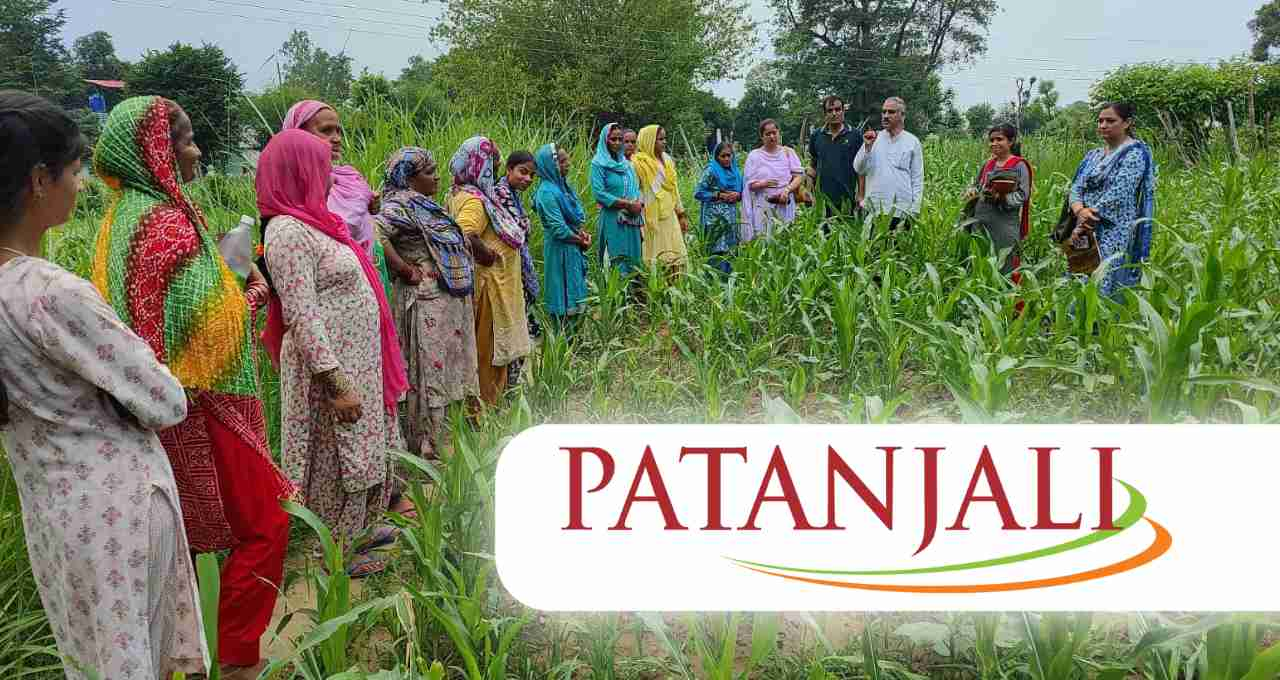Patanjali Ayurved has not limited itself to being just a consumer goods selling company, but is also engaged in transforming the socio-economic landscape of villages and small towns. The company's focus is on creating a b economic network by empowering local farmers and rural entrepreneurs.
The company claims that it directly purchases herbs, grains, oils, and other raw materials from local farmers. This not only provides farmers with good prices but also eliminates the role of middlemen. The Patanjali Food and Herbal Park located in Haridwar is the center of this work, where panchayats and self-help groups are also associated with the farmers.
Increasing Employment and Production in Villages
Local people are getting employment in the process from taking raw materials from the villages to converting them into finished products. Farmers, laborers, technicians, and women's groups are working in this entire system. This has not only increased income in the village, but people are now preferring to work in their own village instead of migrating.
Benefits of 'Kisan Samridhi Yojana' for Farmers

Patanjali has launched a special scheme called 'Kisan Samridhi Yojana' for farmers. Under this scheme, farmers have been connected to digital technology.
Smart soil testing, weather information, and crop market value-related data are now reaching farmers directly through mobile apps. For this, the company has partnered with technology companies, which is helping farmers make the right decisions.
MSMEs are Getting Capital and Training Assistance
Patanjali's model is not limited to just farmers. The company is also supporting small and medium enterprises. Working capital is being made available based on invoices so that any small businessman can grow their business without any hassle.
For this, Patanjali has joined hands with some fintech companies that provide financing facilities to MSMEs. With this facility, small traders can buy raw materials on time and bring their products to the market on time.
Women are Getting Self-Employment Opportunities
Patanjali is also at the forefront of women empowerment. The company provides training in organic farming to women in rural and semi-urban areas. Along with this, women are trained to sell their products, set prices, and connect with customers through digital tools and mobile apps.
In many places, women are now forming groups to make small Ayurvedic products and are also selling them in partnership with Patanjali. This has given them a chance to become self-reliant.
Local Entrepreneurs Got a New Platform
Patanjali's ventures like 'Swadeshi Kendra' and Ayurvedic clinics are also giving a platform to those local entrepreneurs who want to start their own small business.
Apart from business, these centers also work for training, product information, and networking. Many youths are now running their own shops, distribution units, and small manufacturing units. This entire process is giving new energy to economic activity in the villages.
Patanjali Becomes a Rapidly Growing FMCG Company

Patanjali is today among the fastest-growing FMCG companies in India. The reason for this is not only the product but also the thinking and strategy behind it.
This business model, built by keeping the rural economy at the center, has not only benefited Patanjali but has also brought out the hidden possibilities in the villages.
Trust Built Through Natural Products
The special thing about Patanjali is that it keeps Indianness and naturalness at the center of its product promotion. Its slogan 'Blessings of Nature' is not just a part of the promotion, but it is also the basis of its strategy.
People in rural areas have faith in traditional herbs and indigenous treatments. Patanjali has created an entire range of Ayurvedic products by making this trust its foundation.
The Distance Between Local and Urban India is Decreasing
A system has been created through Patanjali, which is helping in bridging the economic gap between rural and urban India. Goods are being prepared from villages and reaching cities, and technology is reaching villages from cities.
This is becoming an example, from which other business houses and companies can also learn how social change can be brought about through a business model.















